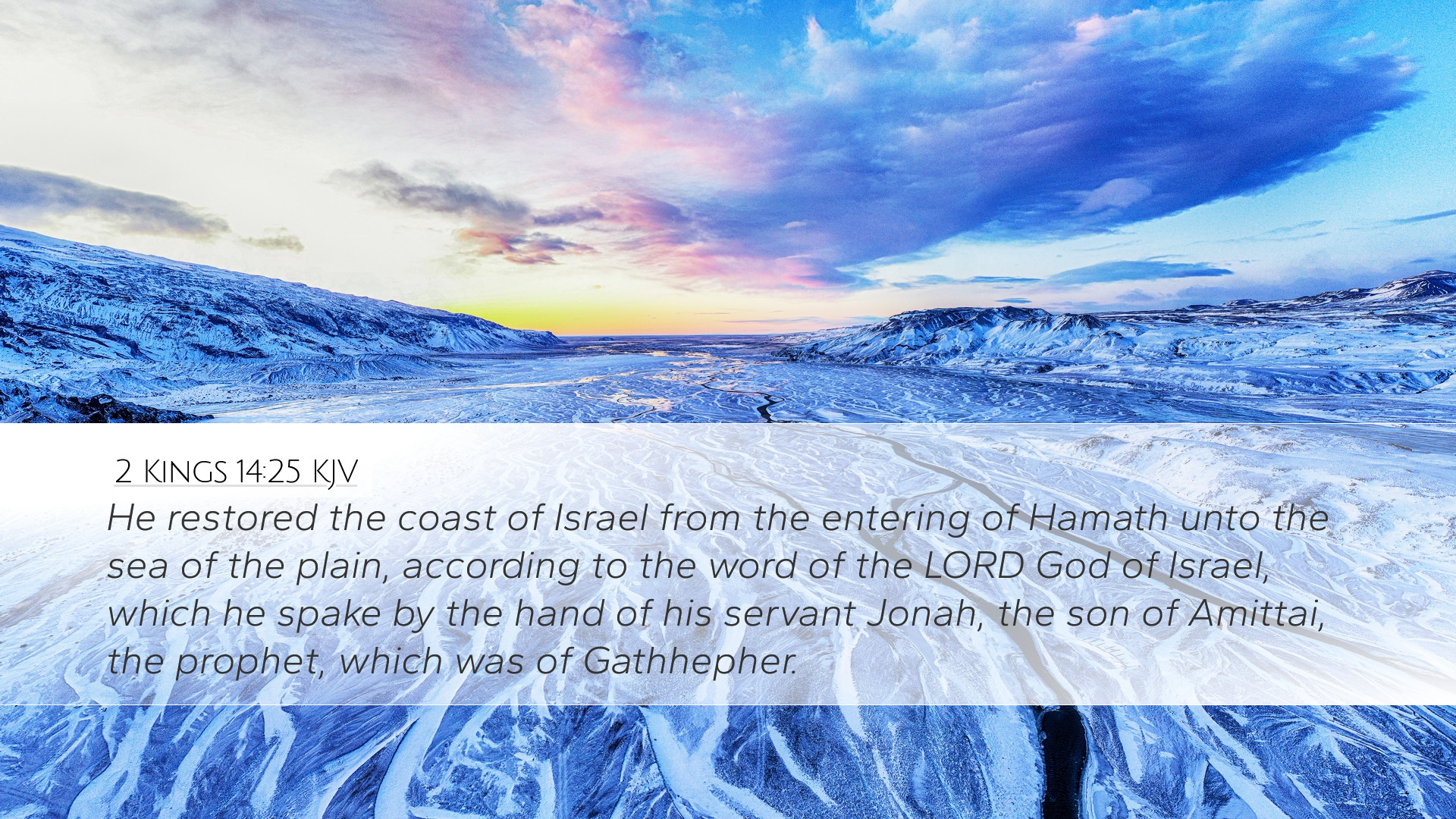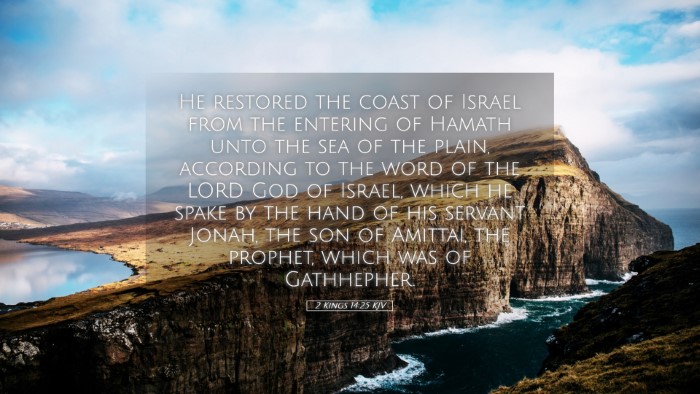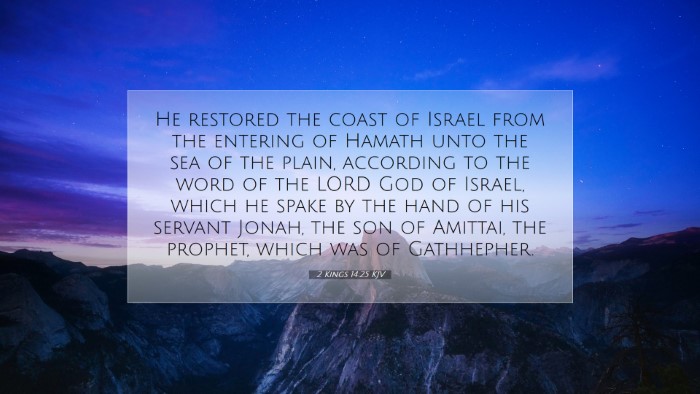Commentary on 2 Kings 14:25
2 Kings 14:25 (KJV): "He restored the coast of Israel from the entering of Hamath unto the sea of the plain, according to the word of the LORD God of Israel, which he spake by the hand of his servant Jonah, the son of Amittai, which was of Gathhepher."
Introduction
This verse marks a significant moment in the history of Israel during the reign of Jeroboam II. Not only does it reflect a restoration of territory but it also highlights the fulfillment of God’s promises through His prophets. This commentary synthesizes insights from various public domain commentators, offering theological reflections valuable to pastors, students, and scholars.
Historical Context
The backdrop of 2 Kings 14:25 is critical for understanding its implications. Jeroboam II, son of Joash, ruled over Israel during a time of relative prosperity, yet also of moral decline. This was a period characterized by idolatry and injustice, as noted by commentators like Matthew Henry. In this context, God’s intervention is illustrated, particularly through the prophetic ministry of Jonah, who directs attention to God’s sovereignty and faithfulness.
Restoration of the Coast
The phrase “He restored the coast of Israel” implies a divine reaffirmation of Israel's territory. Albert Barnes emphasizes that this rejuvenation of land was directly linked to obedience to God’s commands. The restoration not only serves as a political achievement but symbolizes God’s provision and kindness toward His people, emphasizing the importance of repentance and returning to righteousness.
The Geographical Significance
- Entering of Hamath: This refers to a northern border which signifies expansion into regions previously lost or contested.
- Sea of the Plain: Represents the southern boundary, emphasizing the breadth of restoration.
According to Adam Clarke, the geographical dimensions highlight God’s intentions to bless the land, reflecting His ultimate authority over nations and territories.
The Role of Prophecy
The latter part of this verse mentions “according to the word of the LORD God of Israel”. Here, the significance of prophetic voices is underscored. Prophets like Jonah were instruments through whom God delivered messages of hope and promise. The inclusion of Jonah’s name also signifies the divine plan that involves restoration beyond mere consolation, suggesting a redemptive arc in Israel’s history.
Insights from Jonah
Jonah, the son of Amittai, known primarily for his confrontation with Nineveh, serves as a reminder that God's plans often encompass a broader scope than perceived by His people. Henry notes that Jonah’s role in this verse points to the interconnection of repenting nations under God’s lordship. Thus, the restoration is not merely a political maneuver but a theological act rooted in divine purpose.
Theological Reflections
This verse elicits numerous theological reflections relevant for both contemporary and historical applications:
- Divine Sovereignty: The restoration of Israel's borders illustrates God's authority over history and nations. His ability to raise and lower kingdoms cannot be overlooked.
- God's Commitment to His People: This act demonstrates God's willingness to restore and bless His people, reinforcing the covenant promises made to Israel.
- The Call for Repentance: Implicit in this restoration is a call for Israel to repent. While blessings are abundant, they carry the calling towards righteousness.
The Response of Israel
Understanding Israel's historical response to divine blessings is crucial. While Jeroboam II and his reign symbolized restoration, the underlying issues of idolatry and moral decay persist. Barnes reminds us that while the land was blessed, the people’s hearts were far from God. This dualistic reality serves as a cautionary tale for modern believers—blessings without obedience can lead to eventual ruin.
Conclusion
2 Kings 14:25 encapsulates a pivotal moment in Israel’s history, revealing the complexity of divine interaction with humanity. Through the lens of restoration, prophecy, and divine sovereignty, this verse challenges readers to contemplate their own relationship with God. As pastors, students, and scholars engage with this text, they are called not only to appreciate the restoration of a nation but also the ongoing relevance of God’s word and the necessity of faithfulness.


